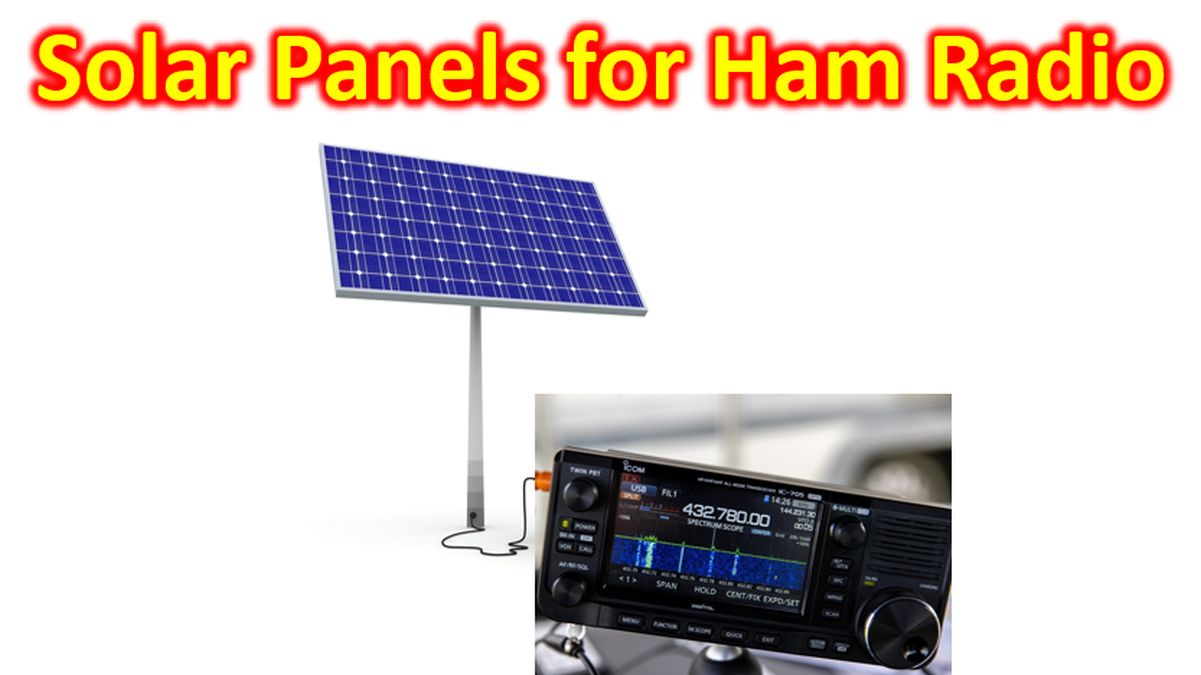Solar Panels for Ham Radio
Solar Panels for Ham Radio
Solar panels are becoming popular as a source of green energy worldwide. Naturally, amateur radio operators, known otherwise as ham radio operators are also moving on to solar panels for running their amateur radio stations. At one extreme we have hams located in remote regions with no availability of electric power from the grid, who have to depend solely on solar energy. More often it is solar energy supplementing power supply from the grid. Another popular use of solar panels in ham radio is for portable operations.
Many use Lithium Iron Phosphate (LiFePO4) batteries for portable operations as they are light weight, compared to conventional lead acid batteries. Solar panels are used to charge these batteries in the field. Foldable solar panels are light weight and can easily fit into the backpack while on the move for portable operations, which could be at a hilltop in case of SOTA. There are many who have fixed solar panels on top of their recreational vehicles used for amateur radio operations, giving a lot of power in the field.

Had a look at the types of solar panels. They are basically of three types: monocrystalline, polycrystalline, and thin film. Thin film variety is the foldable one, which is often seen in the backpacks of SOTA operators, being quite light weight. But they are also the least efficient among the three. They are made of amorphous silicon or other materials like cadmium telluride, and indium gallium. Thin film solar panels are best for low power operations as they may become more expensive at high power applications. Monocrystalline variety made of single crystals of silicon, as the name implies, are the most efficient and most expensive ones. Polycrystalline solar panels come in between in the cost and efficiency. Hence they are popular for regular non-portable applications.
There are other components in addition to solar panels when we think of solar power supplies. One is the solar inverter which converts the energy to the appropriate voltage for consumption. If solar inverters are not of good quality, they can produce a lot radiofrequency interference with amateur radio receivers. I have seen many radio amateurs posting difficulties faced due to solar inverters in the neighbourhood, often curtailing their amateur radio operations. Storage battery with a good charging circuit which will prevent overcharging is also needed as part of the solar power supply. Solar panels in general have a projected lifespan of two decades and needs substantial investment if you are planning an off grid power supply. Hence you have to choose the best option suited for your budget and requirement.